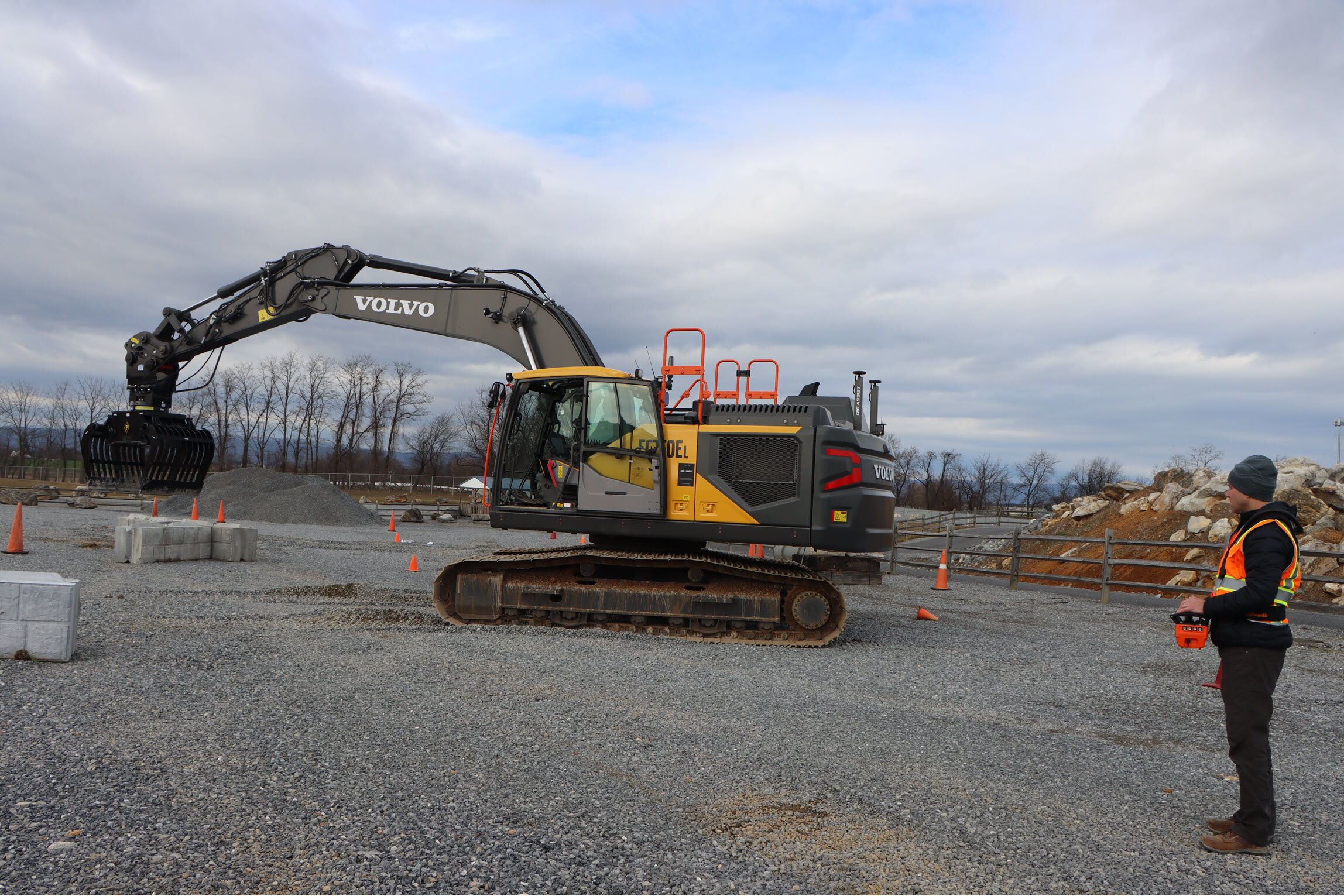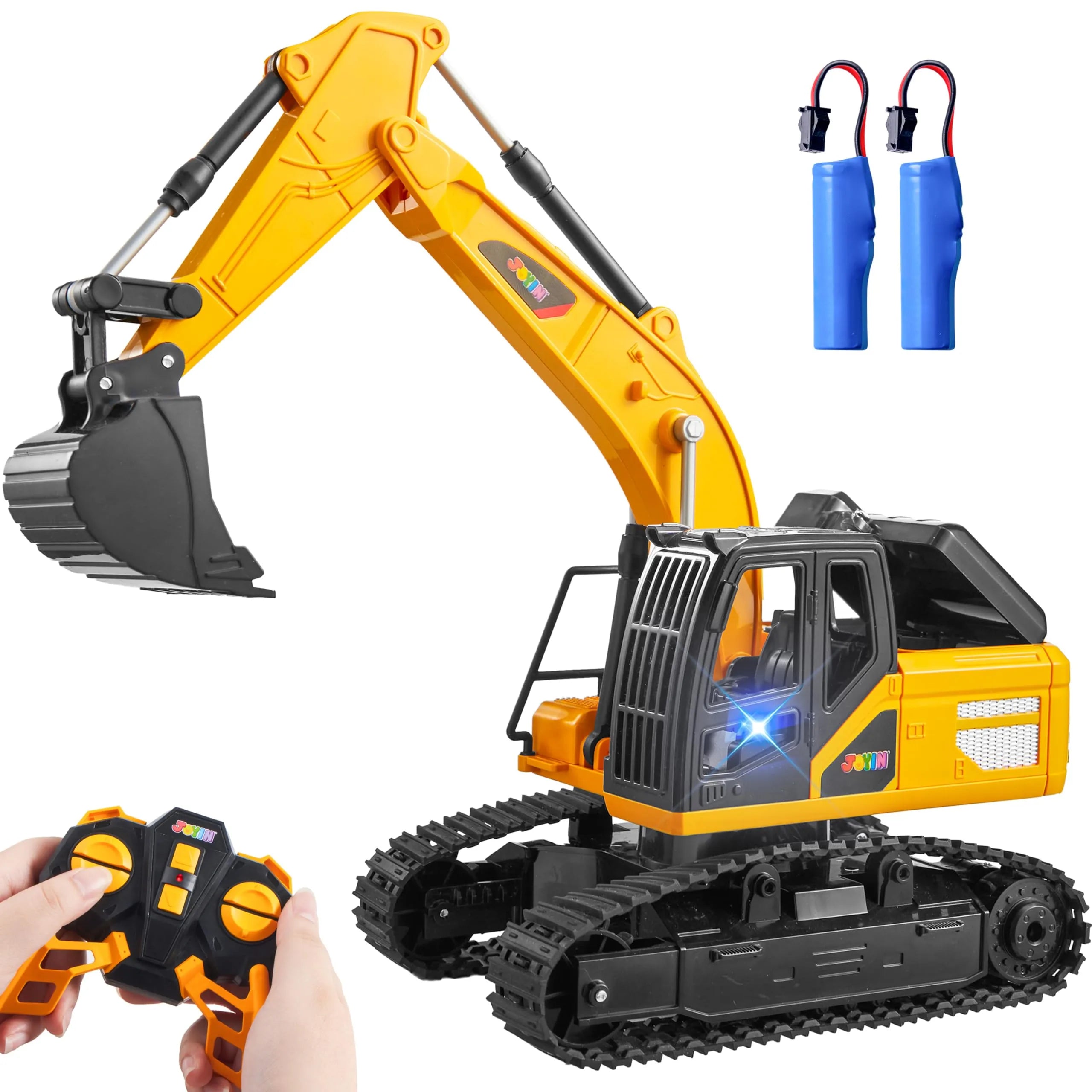Understanding Just How Excavator Works and Its Influence On Performance
Excavators play an important function in building and mining procedures, counting on a complicated interplay of hydraulic and mechanical systems. Their ability to carry out a selection of jobs pivots on both their layout and the technology integrated within. Recognizing these elements can considerably affect operational efficiency and performance. As innovations remain to reshape the sector, one should think about just how these changes will influence future practices and performance.
The Basics of Excavator Mechanics

The Duty of Hydraulic Systems in Excavators
At the heart of excavator procedure lies the hydraulic system, which plays an essential function in powering the machine's motions and features. This system makes use of pressurized hydraulic fluid to move energy, allowing numerous actions such as digging, moving, and training. By utilizing the principles of hydraulics, excavators can carry out jobs with remarkable accuracy and force, enhancing total functional efficiency.The hydraulic system is composed of crucial elements, including valves, pumps, and cylinders, which function together to regulate the flow and direction of the fluid. When the driver involves the controls, the hydraulic liquid is guided to certain cyndrical tubes, equating the driver's commands right into physical motion. This system enables receptive and smooth actions, which are crucial in construction and excavation environments. double e volvo rc excavator. The efficiency of the hydraulic system directly impacts the efficiency and flexibility of the excavator, making it an important aspect in modern-day excavation processes
Trick Components of an Excavator
Recognizing the vital components of an excavator is necessary for grasping just how this effective machine runs. An excavator consists of several significant elements, including the undercarriage, residence, boom, arm, and pail. The undercarriage offers stability and mobility, often including tracks or wheels to browse various terrains. Your home consists of the engine and hydraulic systems, enabling the operator to regulate motion and power the equipment. The boom prolongs from the house, making it possible for vertical reach, while the arm links to the container, facilitating excavating and training operations.Additionally, the cab houses the operator, equipped with controls for precise maneuvering. Each of these elements plays a vital function in the excavator's general capability, contributing to its efficiency and efficiency on building and construction sites. Comprehending these parts helps in maximizing and maintaining excavator performance, making certain jobs are finished securely and properly.
Accessory Convenience and Its Benefits
Attachment flexibility is an important element of excavators, making it possible for operators to change between various devices customized for specific tasks. This flexibility not only improves work performance but likewise adds to cost-effectiveness by decreasing the requirement for multiple devices. Recognizing the various sorts of accessories offered can greatly impact the total performance and performance of an excavator on job sites.
Sorts of Attachments
While excavators are primarily recognized for their excavating capacities, their real versatility hinges on the broad range of accessories offered. These add-ons boost the excavator's performance, enabling it to perform various tasks past excavation. Usual accessories consist of containers (for digging and scooping), hydraulic thumbs (for grasping materials), and augers (for piercing holes) Grapples are made use of for moving and taking care of particles, while rippers can separate tough surfaces. Various other specialized attachments, such as trenchers and rakes, enable excavators to adjust to details work demands. This diversity not just boosts the device's energy across different industries, including demolition, building, and landscaping, but also permits drivers to customize their devices to meet details task needs efficiently.
Enhanced Job Effectiveness
Making the most of work efficiency is a main advantage of using numerous excavator attachments. Different add-ons enable an excavator to perform multiple tasks without requiring to switch tools, saving beneficial time and labor. As an example, utilizing a hydraulic hammer can damage concrete while a bucket attachment can dig deep into soil, making it possible for a smooth process. This flexibility reduces downtime related to tools modifications and enhances performance on-site. Additionally, specialized attachments boost accuracy in tasks such as grading or landscape design, causing better end results. The capacity to adjust to different task needs not just enhances procedures but likewise reduces the requirement for added equipment, making certain that projects are finished swiftly and effectively. On the whole, add-on adaptability considerably adds to raised task this link effectiveness in excavation work.
Cost-Effectiveness and Adaptability
Cost-effectiveness is a considerable advantage of making use of versatile excavator attachments. These attachments permit a solitary excavator to execute numerous tasks, lowering the demand for extra machinery and labor - double e volvo rc excavator. By changing between buckets, hammers, and grapples, operators can deal with different projects, from digging to demolition, therefore making best use of tools use. This versatility not just reduces operational prices however also minimizes downtime related to transforming tools. Additionally, the ability to tailor excavators with specialized add-ons improves productivity, as they can efficiently take care of varied tasks according to project demands. To conclude, the mix of cost-effectiveness and convenience in excavator accessories contributes to improved functional efficiency and resource allotment in construction and excavation tasks

Advanced Modern Technology in Modern Excavators
Modern excavators are significantly furnished with sophisticated technology that changes excavation procedures. Automation streamlines click this operations, while improved fuel performance lowers functional costs. Additionally, clever control systems enhance accuracy and safety, noting a substantial development in excavation equipment.
Automation in Excavation Processes
As excavation modern technology progresses, automation has arised as a critical part in improving efficiency and accuracy on job websites. Modern excavators are geared up with innovative automated systems that facilitate tasks such as grading, excavating, and trenching with minimal driver treatment. These systems use sensing units, GPS, and maker understanding formulas to ensure accurate positioning and deepness control, considerably decreasing the margin for mistake. Furthermore, automation permits drivers to concentrate on calculated decision-making instead of hands-on controls, leading to enhanced performance in general. Such developments not just improve operations however likewise boost safety by lessening human mistake in complex procedures. The combination of automation in excavation procedures stands for a considerable improvement in building and construction innovation, driving the market towards higher performance and performance.
Enhanced Fuel Efficiency
Developments in innovation have actually additionally led to significant enhancements in fuel effectiveness for modern excavators. Modern equipments are equipped with advanced engines that optimize power result while lowering fuel usage. These engines utilize ingenious burning technologies, such as turbocharging and direct fuel injection, to enhance performance and efficiency. In addition, light-weight products in building and construction minimize overall weight, enabling less power expense throughout operation. The introduction of variable speed controls makes it possible for drivers to readjust engine efficiency according to details jobs, additionally decreasing gas usage. As a result, these enhancements not only lower functional prices however also add to environmental sustainability by reducing emissions. Overall, improved fuel efficiency in excavators is a necessary advancement that bolsters performance and financial feasibility in the building industry.
Smart Control Systems
While drivers navigate increasingly intricate job sites, clever control systems in excavators have actually become important tools for improving efficiency and accuracy. These advanced modern technologies use formulas and sensors to keep track of various specifications such as load weight, surface problems, and operational efficiency. By automatically changing hydraulic functions, smart systems maximize maker performance, causing improved performance and reduced endure components. Furthermore, drivers profit from instinctive user interfaces that offer real-time comments and diagnostics, enabling notified decision-making. This combination of technology not just improves procedures yet also lessens human mistake, contributing to more secure job atmospheres. As the building and construction sector remains to develop, wise control systems will certainly play an important duty in forming the future of excavator efficiency and performance.
Enhancing Functional Performance With Excavators
Excavators play a crucial role in enhancing operational effectiveness across different construction and excavation projects. Their flexibility enables numerous jobs, consisting of product, digging, and lifting handling, which improves why not check here workflows and decreases the requirement for extra devices. With powerful hydraulic systems, excavators can carry out sturdy tasks with precision, considerably decreasing the time required to complete projects. The combination of advanced technology, such as general practitioner and automated controls, further enhances their procedure, making it possible for drivers to attain higher accuracy and decrease product waste. In addition, modern excavators are made to take in much less gas and reduce emissions, contributing to both cost financial savings and ecological sustainability. By utilizing excavators efficiently, construction groups can improve efficiency, meet project target dates, and enhance overall website monitoring. This multifunctionality and effectiveness make excavators important tools in the modern building and construction landscape.
The Future of Excavators in Construction and Mining Industries
As the construction and mining sectors progress, the future of excavators is poised for substantial improvement driven by technical advancement and changing functional demands. Breakthroughs in automation and synthetic intelligence are improving excavator abilities, permitting boosted precision and performance in operations. Self-governing excavators are arising, decreasing the demand for human intervention and lessening the threat of accidents.Moreover, the combination of telematics and IoT modern technology enables real-time surveillance of device performance and anticipating maintenance, maximizing uptime. Environment-friendly designs, including hybrid and electrical models, are getting traction, straightening with sustainability goals within the industry.Additionally, using advanced materials and lighter layouts enhances fuel effectiveness while keeping performance requirements. As these patterns progress, excavators will play an essential role in satisfying the raising demands for productivity and security in building and construction and mining, inevitably transforming operational landscapes.
Frequently Asked Concerns
Exactly How Do Climate Problems Influence Excavator Efficiency?

Climate condition substantially affect excavator efficiency, as rain and mud can hinder traction and security, while severe temperatures may affect hydraulic systems. Operators must adjust to these variables to assure excellent capability and security during operations.
What Precaution Should Operators Comply With While Using Excavators?
Safety actions for excavator drivers include wearing ideal individual protective tools, carrying out pre-operation evaluations, ensuring correct communication with ground employees, keeping a secure distance from overhanging risks, and sticking to recognized functional procedures to avoid mishaps.
Just How Frequently Should Excavators Be Kept for Optimal Performance?
Excavators should be kept on a regular basis to ensure peak performance, generally every 250 operating hours or as specified by the producer. Regular checks enhance integrity, prevent unforeseen breakdowns, and prolong the life-span of the equipment.
What Is the Ordinary Lifespan of an Excavator?
The ordinary lifespan of an excavator usually varies from 10,000 to 15,000 hours of operation. Aspects affecting long life include upkeep practices, operating conditions, and the high quality of the equipment itself, impacting overall efficiency and performance.

Can Excavators Operate on Irregular Terrain Successfully?
Excavators can run effectively on unequal surface because of their expressed designs and adjustable tracks. These functions permit them to keep stability and traction, allowing reliable procedure in tough environments frequently encountered in construction and landscaping jobs. Each of these parts plays a vital role in the excavator's overall functionality, contributing to its efficiency and efficiency on building websites. Making the most of task effectiveness is a main advantage of using different excavator accessories. While operators navigate progressively complicated work websites, clever control systems in excavators have actually emerged as important devices for improving performance and accuracy. Excavators play an important function in enhancing functional effectiveness across different building and excavation projects. Advances in automation and artificial knowledge are improving excavator abilities, allowing for enhanced accuracy and performance in procedures.
Comments on “How to Improve Productivity with a rc excavator on Your Next Project”